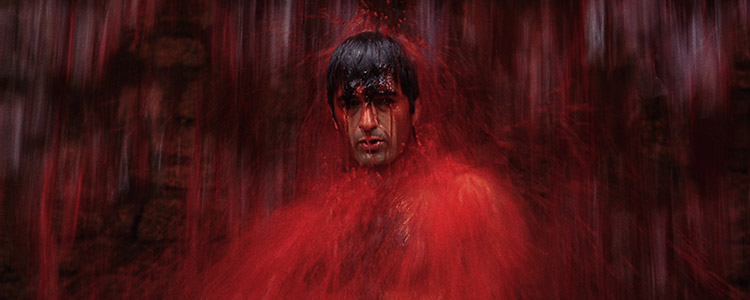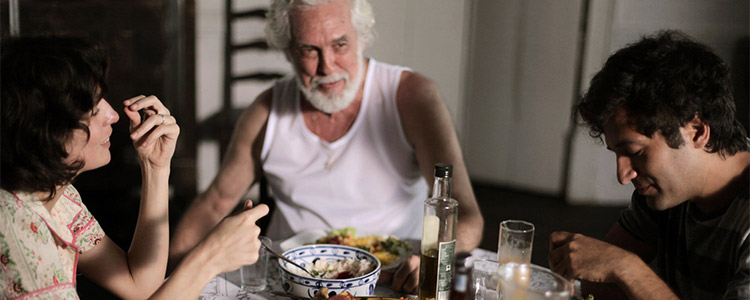- You are here: Home > Competition > Neighbouring Sounds
You are here
Life in an exclusive neighborhood in the Brazilian town of Recife follows its own steady course: Bia suffers from severe insomnia caused by her neighbors’ dog, and tries to silence it by any means possible, João falls in love with a girl he knows nothing about, while Dinho is the scare of all the other residents’ cars, and their respective CD players. Above all, the fatherly figure of Claudio, the master without a crown of the neighborhood. The relative equilibrium of it all is blown into pieces when the employees of a private security firm offer their services. Little by little, secrets old and new are revealed. The sins of post-colonial Brazil are finally accounted for, which is by no means one and the same thing with justice being made. Brazil’s official proposal for the Best Foreign Language Film category at the 2014 Academy Awards.

Born in 1968 in Recife, Brazil, Kleber Mendonça Filho is a graduate of the University of Journalism, and a well respected film critic for publications such as “Jornal do Comércio de Recife” și “Folha de S.Paulo”. In the ’90s, he directs a series of documentaries and shorts. Over the last decade, his short films have won over 100 awards in Brazil and abroad, with selections in Karlovy-Vary, BAFICI, Rotterdam, Recontres Cinémas d’Amérique Latine de Toulouse, Clermont-Ferrand and Cannes. His first feature, the documentary CRITICO, focused on the troubled relationship between filmmakers and critics, through a series of personal interviews recorded over a period of eight years. In 2011, he puts a stop to his efforts as a film critic, in order to fully dedicate himself to filmmaking, feeling he no longer has the right to judge his peers’ efforts. He produces his own films, through his agency CinemaScópio.
Selected filmography:
- 2009 COLD RECIFE / RECIFE FRIO (short)
- 2008 CRITICO (documentary)
- 2004 VINIL VERDE (short)
Brazil, Pernambuco state, the town of Recife, the neighborhood of Setubal. Echoes from the end of the XIXth century, when slavery was the norm, can still be heard now. Older houses are swallowed by new blocks of flats, and modern apartments are to this day provided with a maid’s chamber, which is rarely provided with a window. There is a fence between the old and the new buildings, so all exchange between the different social classes, especially those driven by vengeance, have to be made with the utmost caution. The film is the story of an operation on enemy soil in which the commoner spy has to face not only a patriarch, the last in a long line of plantation owners, or at least the modern representation of one, but also the widely spread fear of the Other. This is how we come to learn that the very same space can be the manifestation ground of exemplary modern freedom and at the same time a concentration camp. Famed American film critic and theoretician David Bordwell said of this film filled with metaphor that we’re certainly dealing with a hidden gem.
- International Film Festival Rotterdam 2012: FIPRESCI Prize
- CHP:PIX Copenhagen 2012: New Talent Grand Prix
- Rio de Janeiro IFF 2012: Best Film and Best Screenplay
- São Paulo IFF 2012: Best Brazilian Film
- Gramado Film Festival 2012: Audience Award and Kikito Critics prize in the Brazilian competition, Best Sound and Best Director
- Cinemanila IFF 2013: Best Director
- Toronto Film Critics Association Awards 2014: Best First Feature
- New Directors / New Films 2012
- Locarno Film Festival 2012
- Thessaloniki IFF 2012; Mar del Plata IFF 2012
- Buenos Aires International Festival of Independent Cinema 2013 etc.



